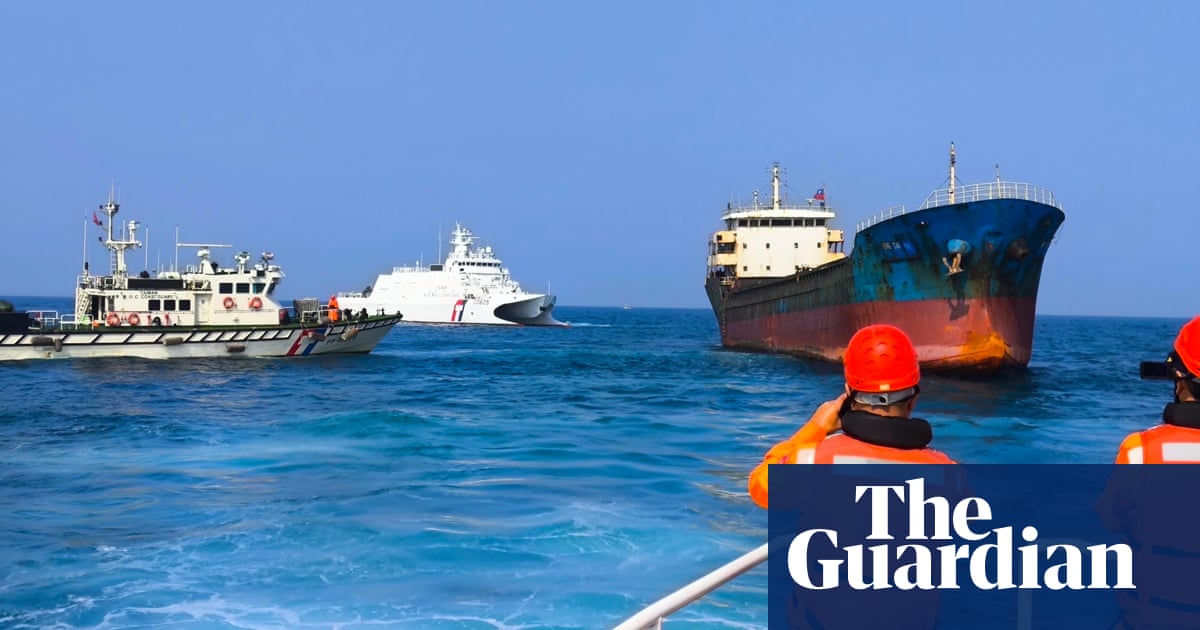Pakistan and the Bahamas have joined a growing bloc of climate-vulnerable countries seeking to broker a global pact to phase out fossil fuels in an equitable way, the Guardian can reveal.
The Bahamas is the 15th nation to fully endorse the proposed fossil-fuel non-proliferation treaty, which would provide a binding global roadmap to explicitly halt expansion of coal, oil and gas in a fair way – with wealthy nations responsible for the highest emissions transitioning first and fastest.
The Bahamas joins Colombia, Vanuatu, Fiji, Tonga, and Tuvalu – as well as 120 cities and local governments, 3,000 academics and 101 Nobel laureates. The World Health Organization, the Vatican, and thousands of non-profits, youth leaders and other faith organizations, have also endorsed the initiative, which is being led by countries from the global south.
Meanwhile, Pakistan becomes the first country in south Asia to formally engage with the expanding coalition to develop a treaty that would lay the foundation for a true just energy transition, tied to financial and technical support for developing and climate-vulnerable countries to ensure workers and communities dependent on fossil fuels are not left behind.
Momentum for the treaty is growing after two ministerial-level meetings in 2024, and formal negotiations expected to begin next year. A number of other countries from across the world are contemplating endorsing or developing the treaty, according to Kumi Naidoo, president of the initiative.

“We are cautiously optimistic that formal negotiations on establishing the treaty will start in 2025, led by the high ambition first-moving countries which are among the most climate impacted nations – and the ones that are seeking ambitious action based on what the science is saying we need to do,” said Naidoo.
“Momentum is without question growing – similar to other processes like the landmine treaty which started with a cluster of countries coming together … once the negotiations start, it will be a major signal to the fossil fuel industry.”
Fossil fuels are by far the biggest contributor to the climate crisis, which is already fueling increasingly destructive and deadly floods, drought, wildfires and extreme heat, as well as slow onset disasters like desertification and sea level rise.
After almost 30 years, the UN climate summits have failed to come up with any meaningful, fair agreement or plan to stop burning fossil fuels – despite overwhelming scientific evidence that this must be done to avoid climate catastrophe. 2024 was the hottest year on record, yet the UN climate talks in Baku, Cop29, the UN biodiversity summit in Cali, the UN drought summit in Riyadh and the plastics treaty negotiations in Basu all ended in failure.
The proposed fossil-fuel treaty would establish a clear pathway for countries to follow the science and comply with existing commitments dating back to the 1992 UN climate summit in Rio de Janeiro, which enshrined the principle of equity into international law, by acknowledging the different capabilities and responsibilities of individual countries in addressing the climate crisis.
The treaty would be complementary to the Paris agreement and UN initiatives, and would specifically address the jobs, revenue and energy access tied to fossil fuels.
Pakistan faces escalating climate effects amid continued political instability, including catastrophic flooding that submerged a third of the country in 2022, as well as extreme heat, droughts, and the slow-onset threat of glacial melting.
But phasing out fossil fuels would require major financial and technology assistance, as oil, gas and coal account for around two-thirds of Pakistan’s energy mix, and it remains heavily reliant on imports. More than 40 million people do not have access to electricity, according to the International Energy Association
Its decision to formally engage with the treaty is therefore a major step forward.
“Finance and cooperation are necessary for addressing the energy access challenges faced by countries like Pakistan,” said Romina Khurshid Alam, coordinator to the prime minister on climate change. “We are joining to analyze the pros and the cons of the proposal put forward – [in] a treaty aimed at phasing out fossil fuels within a time-bound framework, contingent on the provision of adequate financing and technology work.”
“Pakistan’s leadership challenges the world’s wealthiest nations to step up and take bold action to assume their responsibility in leading the efforts to end our dependence on these destructive fuels. This is not just about transitioning to clean energy – it is about justice, equity, and ensuring that those least responsible for the crisis are not left to bear its worst impacts,” said Sanjay Vashist, director of Climate Action Network South Asia.
Vanuatu, which led efforts to secure this month’s historic climate hearings at the international court of justice, praised Pakistan and the Bahamas for showing “climate leadership”.
Ralph Regenvanu, Vanuatu’s special envoy for climate change and the environment, said: “From small island states to major economies and fossil-fuel producers, 16 nations across the global south have now united behind the push for a fossil fuel non-proliferation treaty, and we call on other nations to join us in this historic effort to protect our future.”

 2 months ago
35
2 months ago
35













































